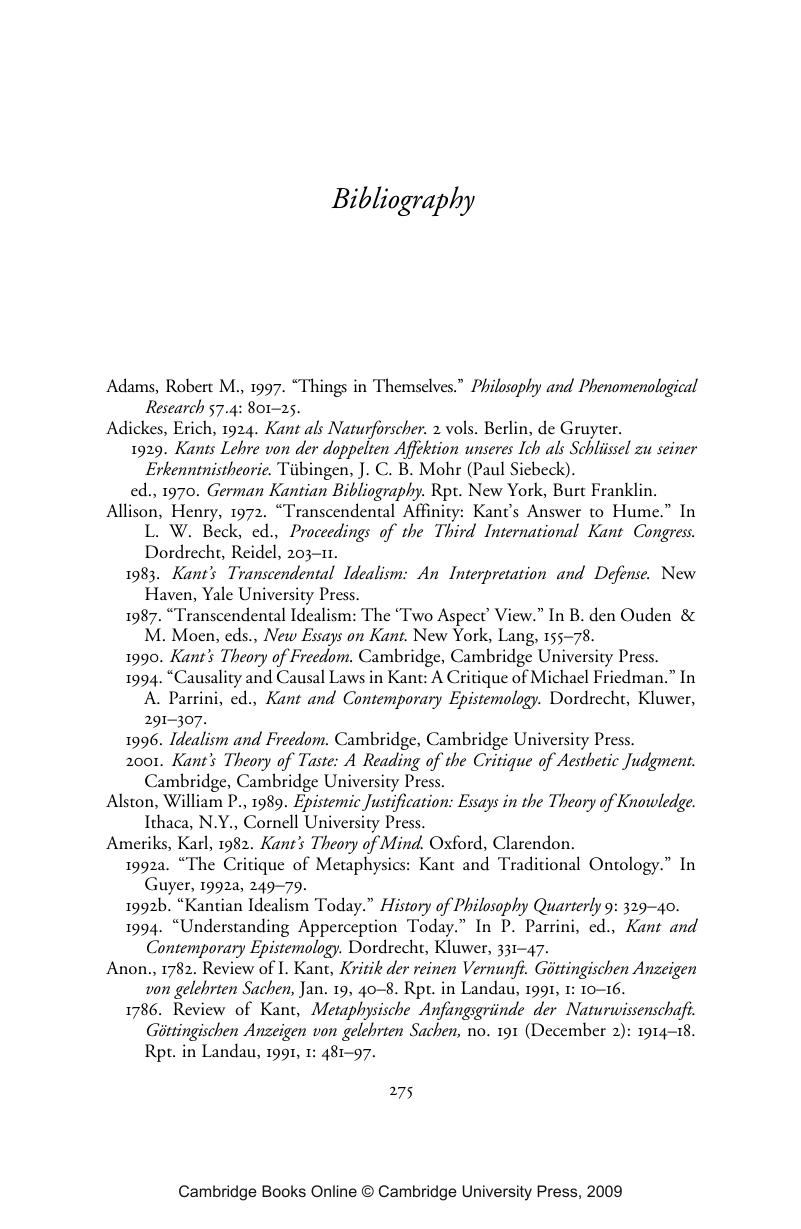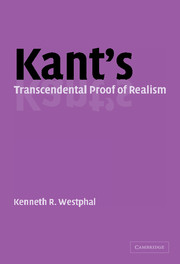Book contents
- Frontmatter
- Contents
- Acknowledgments
- List of abbreviations
- Introduction
- 1 Kant's methods: transcendental and epistemic reflection
- 2 The metaphysics of Kant's transcendental idealism
- 3 Transcendental affinity
- 4 The gap in Kant's Critique of Pure Reason
- 5 Kant's dynamic misconstructions
- 6 Kant's metaphysical proof of the Law of Inertia
- 7 Three Kantian insights
- Appendix
- Bibliography
- Index of names
- Index of subjects
- References
Bibliography
Published online by Cambridge University Press: 06 November 2009
- Frontmatter
- Contents
- Acknowledgments
- List of abbreviations
- Introduction
- 1 Kant's methods: transcendental and epistemic reflection
- 2 The metaphysics of Kant's transcendental idealism
- 3 Transcendental affinity
- 4 The gap in Kant's Critique of Pure Reason
- 5 Kant's dynamic misconstructions
- 6 Kant's metaphysical proof of the Law of Inertia
- 7 Three Kantian insights
- Appendix
- Bibliography
- Index of names
- Index of subjects
- References
Summary

- Type
- Chapter
- Information
- Kant's Transcendental Proof of Realism , pp. 275 - 290Publisher: Cambridge University PressPrint publication year: 2004



